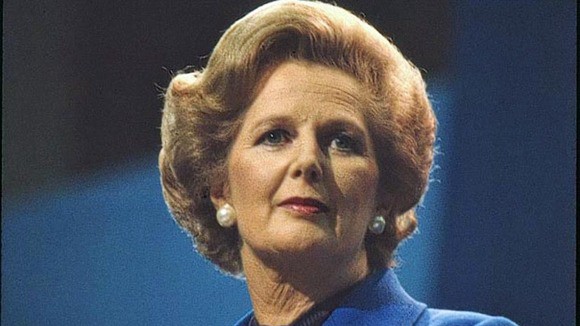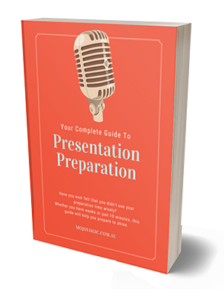You turn if you want too, the lady’s not for turning.
Margaret Thatcher delivered a lengthy (40min) speech on October 8th, 1980 to the Conservative Party Conference in Brighton, UK. She had a lot to say and there is much to analyse, but this phrase lives on in infamy. Perhaps because it is rather enigmatic and therefore interesting. A play on The Lady’s Not for Burning, a 1948 play by Christopher Fry about a witchcraft trial. Here is the quote with a little bit more context:
To those waiting with baited breath for that favourite media catchphrase the “U-turn,” I have only one thing to say: You turn if you want to: The lady’s not for turning. And I say that not only to you but to our friends overseas as well, and also to those who are not our friends.
When Thatcher delivered this speech she had been in power for about a year and in that time unemployment had risen from one and a half to two million. In addition to facing opposition from the cross-benches and the public, she was also fending off criticism from within her own party. Some conservatives opposed Thatcher’s radical free-market policies.
In this speech, particularly this declaration of strength Thatcher signals her commitment to the policy she has set in motion. Indeed, most of the speech is about arguing for and defending the course of action she has established.
Ideological Conviction
Now, I myself am not, nor have I ever been a citizen of the United Kingdom. But, I am well aware that the mere mention Margaret Thatcher’s name can provoke strong reactions among many. Part of the reason is that she quite clearly, deliberately and unwaveringly stood for something. If that something is in opposition to your own ideology, then then the middle ground can seem unobtainable.
The purpose of this analysis is to explore Thatcher’s style and technique, rather than comment on her ideology per se. There is much we can learn from disassembling the defining speeches of those who we disagree with the most.
Thatcher sets her sights high:
It’s sometimes said that because of our past we, as a people, expect too much and set our sights too high. Mr. Chairman, that’s not the way I see it. Rather it seems to me that throughout my life in politics our ambitions have steadily shrunk; and our response to disappointment hasn’t been to lengthen our stride but to shorten the distance to be covered. But with confidence in ourselves and in our future what a nation we could be.
The Iron Lady is all-in.
Handling the Hecklers
At one point in this speech, a protester shouts “power to the workers. Tories out!”
Thatcher uses this as an opportunity to retort;
Never mind — it’s wet outside. I expect they wanted to come in. We can’t blame them; it’s always better where the Tories are. And you — and perhaps they — will be looking to me this afternoon for an indication of how the government sees the task before us and why we’re tackling it the way we are.
Showing a certain level of comfort in her position at the podium. Whilst her speech is no doubt fully prepared – such off-the-cuff refutations are a sign of oratorical skill.
Use of Metaphor
Typically, Margaret Thatcher is light on the use of metaphor. And this speech is no exception. Her persona is pragmatic and her rhetoric is generally aligned to that identity. However, Thatcher indulges in this particularly effective rhetorical flourish:
So Mr. Chairman, what could stop us from achieving this? What then stands in our way? The prospect of another winter of discontent? I suppose it might.
But I prefer to believe that certain lessons have been learned from experience, that we are coming slowly, painfully to an autumn of understanding. And I hope it will be followed by a winter of common sense. If it isn’t we shall not be diverted from our course.
And in another clever maneuver, she turns the opposition’s metaphor around and uses it in refutation:
The Left continues to refer with relish to the death of Capitalism. Well if this is the death of Capitalism I must say it’s quite a way to go.
Recognition of Others
In highlighting the successes of the party, Thatcher is diligent in mentioning those involved by name. She begins by thanking her husband, Denis Thatcher. She mentions her deputy Willie Whitelaw and the budget created by Geoffrey Howe.
She goes on to share the limelight with multiple players including; Jim Prior, Keith Joseph, David Howell, John Nott, and Norman Fowler. Then Michale Heseltine, Anthony Eden, Lord Carrington — and the list goes on.
Light on Pathos?
Thatcher tends to err on the side of logos over pathos. There is little emotional connection attempted and even less demonstration of her own emotion. Is this a shortcoming?
Perhaps, in analysing this speech alone, you would observe a missed opportunity. However, overall, this omission could be perceived as consistent with her persona – ie. pragmatic, courageous, resilient.
Problems of logical argumentation
In a strange combination of rhetoric and refutation, Thatcher delivers this statement in response to her critics:
If I could press a button and genuinely solve the unemployment problem do you think that I would not press that button this instant? Does anyone imagine that there is the smallest political gain in letting this level of unemployment continue? Or that there is some obscure economic religion which demands this level of unemployment as part of its grizzly ritual?
The argument here is:
If there was a magic button I would push it.
There is no magic button.
Therefore, what I am doing should be understood to be the next best thing.
This is an example of the flawed reasoning that pops up again with this statement:
If spending money like water was the answer to our country’s problems we would have no problems now. Because if ever a nation has spent, spent and spent again, ours has. And today that dream is over. All the money has got us nowhere and yet it has to come from somewhere.
The previous (Labour) government spent a lot of money.
Britain still has a lot of problems.
Therefore government spending does not solve problems.
Again, a logical leap.
Is it possible that, in the absence of pathos, we are less likely to zero in on the logical construction of an argument? To pick apart the false premises, fallacies and false conclusions. Which then leads to conclusions such that voiced below – and its profound implications on policy.
Of course our vision and our aims goes far beyond the complex arguments of economics but unelss we get the economy right we shall deny our people the opportunity to share that vision and to see beyond the narrow horizons of economic necessity.
And finally, this piece of circular reasoning:
Without a healthy economy we can’t have a healthy society. And without a healthy society the economy won’t stay healthy for long.
Consistency, Conviction, Conservativism
This speech is but one example of several delivered by Margaret Thatcher in her many years in politics. It is a fine example of her speechcraft in which she uses the podium, as all politicians must, to reiterate and reinforce her platform. To whip up support among her own party and knock back her opponents.
The full version of her speech can be found here:
__________________________________________________
A Speech a Week Series
Words have the power to change the world. Speeches are used by leaders, revolutionaries and evangelists to persuade people to think differently, to feel something new and to behave in remarkable ways.
In this series we will examine one notable speech per week. We hope to cast a wide net – including politicians, business leaders, preachers, entertainers and philosophers. These articles will consider matters of content and style to uncover the secrets of oratorical success.
By examing the components of speechcraft we can improve our own powers of persuasion. We will come to appreciate the craft of eloquence – guarding against silver-tongued miscreants whilst gradually building our own expressive capability.
If you would like to contribute to the series by suggesting a speech, please send us a message via the mojologic website.


